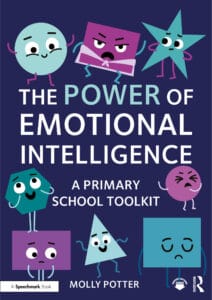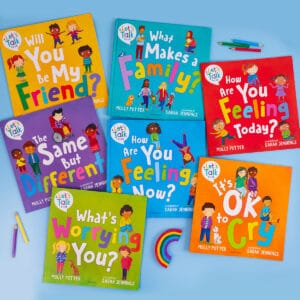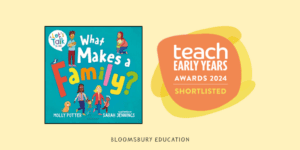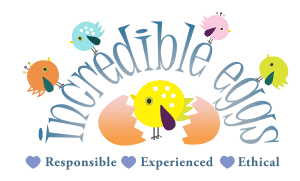As well as regularly writing educational resources for Incredible Eggs, Molly Potter has worked in education in a variety of guises for more than three decades and is the best-selling author of around forty books published by Bloomsbury and Routledge. Early this August her latest book: The Power of Emotional intelligence – a primary school toolkit, was released and we’re excited to announce some fantastic giveaways!
We’ve teamed up with Routledge – the world’s leading academic publisher in the Humanities and Social Sciences – who has very generously provided us with seven complimentary copies to pass on free of charge to primary schools; one for each Incredible Eggs branch. We’ll enter every primary school who books a 2025 hatching kit during September 2024 and draw the names of the winners on the 10th of October, 2024. We’ll then mail out copies to the lucky schools!
And for those who simply can’t wait or don’t get lucky this time, Routledge has also very kindly supplied us with a 20% discount code, valid until the end of 2024. The code is EFLY03, which can be applied to orders of this book here.

Here’s our in-depth interview with Molly to find out more!
What inspired your latest book?
Unusually (I think), Routledge approached me to write a book about emotional intelligence (EQ) for schools. I was delighted with the opportunity as I have lived, eaten and breathed EQ for many years and accrued a lot of experience and information about it.
What is emotional intelligence?
Emotional intelligence is the ability to notice, understand, endure and manage emotions so that they guide our thoughts and behaviour beneficially and don’t automatically trigger impulsive or unhelpful behaviours. Those with good emotional intelligence usually have a good understanding of themselves, can self-regulate, can empathise, have good social skills and are able to motivate themselves effectively.
The title of your latest book implies emotional intelligence has power! Would you agree with that?
I certainly do! Much of what we do and how we behave is often unconsciously driven by our emotions. In very simple terms, emotions tend to motivate us towards seeking out more of something or trigger us to move away from, or push away, something. If we are unaware of their influence, we can engage in many less-than-desirable behaviours. Such unhelpful behaviours can include aggressive outbursts, being controlling, bingeing on things that are not good for us, refusing to leave our comfort zone and challenge ourselves, sulking and/or avoiding, always blaming others, ruminating and catastrophising – to name a few.
I always say the ‘gold star’ of emotional intelligence is when we become good at noticing emotions as they arrive. This is the ‘make or break’ moment when we can become curious about what messages they might be giving us and then consciously decide what the best response would be. With poor emotional intelligence, for example, people can become angry and go straight to defensive behaviours without any awareness of their unique process that took them there.
I have been on a giant personal journey with emotions: from a childhood where the role-modelling of expression of emotion could probably not have been worse, to a place as an adult now where emotions rarely catch me off guard. Not only has my self awareness improved, I am more motivated, more willing to try new things, more authentic in relationships and no longer completely consumed by my emotions! I’d say emotional intelligence is actually a super-power as it makes life just so much easier!
You taught for many years in a pupil referral unit (PRU). Did this have any influence on your interest in emotional intelligence?
Over the many years of teaching children who really struggle to self-regulate, it soon became clear that most of the children’s behaviour was driven by their easily-triggered, negative emotions that often caused overwhelm. Finding something too difficult, perceived unfairness, making a mistake, changes (sometimes tiny ones!) or having to meet a new person, are examples of situations that could trigger intense emotions in the children. These strong emotions often led to dangerous or disruptive behaviours as the children felt a desperate need to either protect themselves or try to take control.
I realised that developing the children’s emotional intelligence was an essential process for helping them slow things down enough so they could eventually make better choices. I developed many reactive and proactive methods that helped children learn about emotions and regulating them as well as link their behaviours to their underlying emotions. The methods developed to help children do this actually benefit all children (and adults)!
What is included in ‘The Power of Emotional Intelligence?’
The Power of Emotional Intelligence is a comprehensive toolkit for primary schools or anyone who works with primary-aged children.
In a nutshell it:
- explains what emotions are, what emotional intelligence is and how to get more of it (including much I have learned while delivering training to teachers, other adults and working with children).
- gives clear guidelines for how to talk about emotions to children (a sort of Dos and DON’Ts list)
- includes many activities for developing emotional intelligence – games, drama activities, discussion prompts, emotion check-ins, reflections, scenarios to explore, agreement spectrums, true and false quizzes, creative ideas for considering emotions and several photocopiables to help with delivery.
- has special chapters dedicated to anger and also anxiety.
- includes activities that explore the emotions linked to learning and facing challenge.
- includes activities that explores the impact of emotions on relationships – mostly friendships.
- looks at how you can support challenging behaviour using emotional intelligence – including several
practical tools.
What do teachers find most helpful about the training sessions you have delivered that are linked to the content of this book?
I often find that while I am delivering training to adults (teachers, parents etc.) under the guise of helping children to become more emotionally intelligent, the adults often learn much that they can apply to themselves!
Another exploration I facilitate (that almost creates relief in adults) is about looking at the emotional reactions we have when dealing with challenging behaviour. The practical tools I deliver always also go down well as they are simple to use, effective and help adults support behaviour in a way that ‘wobbles’ them less too!

I see you have also written several picture books for young children in topics that would broadly come under the umbrella of personal, social, health and economic education. What inspired you to write these books?
Yes my ‘Let’s Talk’ series are picture books for young children that are best initially read with an adult as they cover topics that children often have lots of questions about! Whenever I read my books with children, I often end up having very entertaining, but also quite ‘deep’, conversations! My Let’s Talk series covers a variety of topics: emotions and what you can do when you experience them, developing emotion vocabulary, exploring friendships, considering helpful and unhelpful behaviours, developing positive mental health thinking habits, tackling worries, celebrating differences, considering what makes a family, a straightforward book about the birds and the bees (the only euphemism is in the title) and even a book that helps children understand death – for the newly bereaved as well as any child who wants their questions answered about death. I am a big believer in giving children accurate information in an age-appropriate way.
Your earlier books were for teachers on a variety of topics. Can you tell us about these books?
I love my first published books and can still feel the excitement of when I got them published! They are called, ‘Outside the Box’ and include a variety of creative and problem-solving activities of the kind I often used at the end of term. The activities are fun but also involving enough to keep excited pupils engaged. When other teachers were always asking to borrow the activities, I figured they might be publishable! I also love my ‘Free Time’ books that likewise, include creative activities for children but are even less formal or ‘lesson-like’ than those included in Outside the Box. I also created two PSHE books that are full of prompts for explorative discussions, two RSE (relationships and sex education books) with a lot of guidance about how to approach RSE, two drama books full of drama games as well as more complex ideas, a book with a 100 ideas for use with secondary tutor groups, some books to support the transition to high school (for parents/carers, teachers and pupils!) and a few more – including activities to make learning the times- tables fun for which I wheeled out my most quirky and creative ideas!
Find out more about Molly Potter – including blog posts with lots if useful ideas and advice – at her website.

We’d like to take this opportunity to wish Molly the best of luck at the Teach Early Years Awards 2024, with another of her books, ‘What Makes a Family?‘ having just been shortlisted. And we look forward to revealing her latest Incredible Eggs educational resources for British Science Week 2025 early next year!

